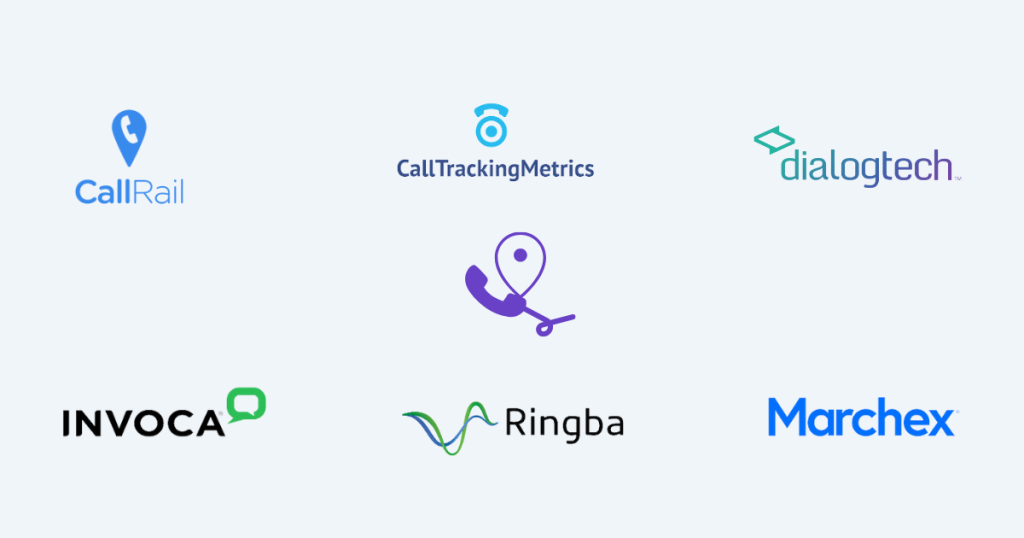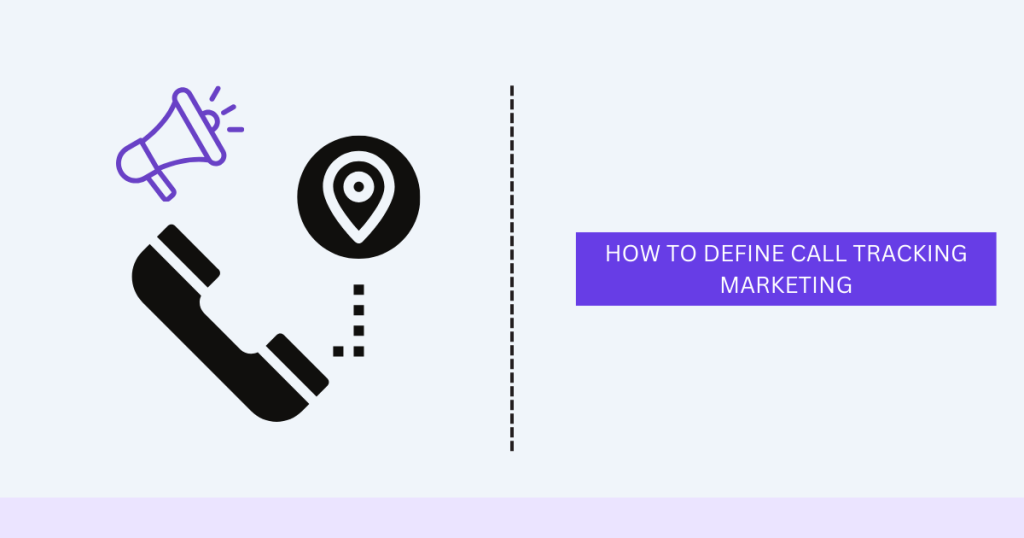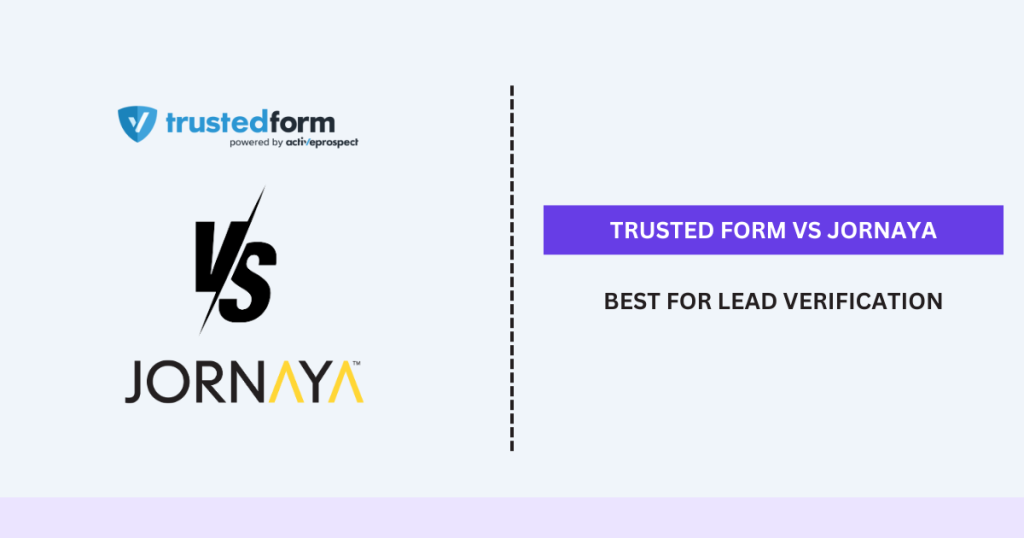In today’s world of digital marketing, businesses are constantly looking for ways to measure and improve their campaigns. One powerful tool that has become essential for many businesses is call tracking marketing. But what exactly is call tracking marketing, and how can it benefit your business? In this comprehensive blog post, we will explore the concept of “How to define call tracking marketing”, how it works, its benefits, key features, best practices, and much more. By the end of this post, you will have a clear understanding of call tracking marketing and how to implement it effectively.
What is Call Tracking Marketing?
Call tracking marketing is a method used by businesses to track and analyze phone calls generated from their marketing campaigns. This involves using unique phone numbers assigned to different marketing channels or campaigns, which allows businesses to see where their calls are coming from and how effective each campaign is. By tracking calls, businesses can gain valuable insights into their marketing efforts and make data-driven decisions to optimize their strategies.
Why is Call Tracking Important?
Call tracking is important for several reasons:
- Measure Campaign Performance: Call tracking helps businesses measure the performance of their marketing campaigns by showing which campaigns are driving phone calls and generating leads.
- Optimize Marketing Spend: By understanding which campaigns are effective, businesses can allocate their marketing budget more efficiently.
- Improve Customer Experience: Detailed call data helps businesses understand what customers like and how they behave, so they can make their service better.
- Increase ROI: By optimizing campaigns and improving customer experience, businesses can increase their return on investment (ROI).
How Does Call Tracking Work?
Call tracking works by assigning unique phone numbers to different marketing campaigns or channels. When a customer calls one of these numbers, the call tracking system collects data about the call, such as the source of the call, the duration, and the outcome. This data is then examined to give insights into how well campaigns are doing and how customers are behaving.
Steps to Implement Call Tracking:
- Set Up Call Tracking Numbers: Assign unique phone numbers to each of your marketing campaigns or channels. This allows you to track calls from each campaign individually.
- Integrate with Your Marketing Tools: Integrate the call tracking system with your existing marketing tools and platforms, such as your CRM system and analytics tools.
- Monitor and Analyze Call Data: Use the call tracking system to monitor and analyze call data in real time. This includes tracking the source of the call, call duration, and call outcome.
- Optimize Your Campaigns: Use the insights gained from the call data to optimize your marketing campaigns. This may involve adjusting your marketing budget, improving your messaging, or targeting different audiences.
Key Features of Call Tracking Marketing
Call tracking marketing offers several key features that help businesses track and optimize their phone calls:
1. Call Tracking
Call tracking is the core feature of call tracking marketing. It allows businesses to track and analyze every call that comes into their business, providing detailed insights into campaign performance and customer behavior.
2. Dynamic Number Insertion (DNI)
Dynamic Number Insertion (DNI) automatically changes the phone number displayed on your website based on the source of the visitor. This helps you see which marketing channels are generating calls and gives you more accurate information.
3. Real-Time Analytics
Real-time analytics allows you to monitor call performance as it happens. This gives you up-to-date information and allows you to make immediate adjustments to your campaigns.
4. Call Recording
Call recording allows you to record and review calls for quality assurance and training purposes. This helps you understand how your team is handling calls and identify areas for improvement.
5. Call Routing
Call routing allows you to route calls to the right person or department based on various criteria, such as the caller’s location or the time of day. This helps improve customer service and ensures that calls are handled efficiently.
6. Custom Reports
Custom reports allow you to analyze specific aspects of your call data. You can create reports on call duration, caller location, campaign performance, and more, providing deeper insights into your campaigns.
Benefits of Call Tracking Marketing
Using call tracking marketing offers several benefits for businesses looking to optimize their marketing efforts and improve customer service:
1. Improved Campaign Performance
Call tracking marketing helps you see which campaigns are driving the most calls and generating the most leads. This lets you concentrate on the campaigns that are effective and make decisions based on data to improve their performance.
2. Enhanced Customer Experience
Call tracking and routing features help make sure that calls are managed efficiently and directed to the right person. This enhances the overall customer experience and increases the chances of turning callers into customers.
3. Better ROI
With detailed insights into campaign performance, you can allocate your marketing budget more effectively and focus on the strategies that deliver the best results. This helps boost your return on investment.
4. Increased Accountability
5. Seamless Integration
Call tracking systems integrate with a wide range of third-party tools and platforms, allowing you to incorporate call tracking data into your existing workflows and systems.
Use Cases for Call Tracking Marketing
Call tracking marketing can be used by a wide range of businesses and industries to track and optimize their phone calls. Some common use cases include:
1. Marketing Agencies
Marketing agencies can use call tracking to measure the performance of their campaigns and demonstrate the value they provide to their clients. By showing detailed call data and insights, agencies can prove the effectiveness of their strategies and make data-driven recommendations.
2. Lead Generation Companies
Lead generation companies can use call tracking to track and optimize their lead generation efforts. By understanding which campaigns are driving the most leads and how those leads are converting, companies can improve their strategies and increase their ROI.
3. E-commerce Businesses
E-commerce businesses can use call tracking to track phone calls related to customer inquiries, support requests, and sales. By analyzing call data, businesses can enhance their customer service, boost sales, and reduce churn.
4. Service-Based Businesses
Service-based businesses, such as plumbers, electricians, and HVAC companies, can use call tracking to track incoming calls and understand which marketing efforts are driving the most leads. This helps businesses allocate their marketing budget more effectively and increase their customer base.
5. Real Estate Agencies
Real estate agencies can use call tracking to track calls from potential buyers and sellers. By understanding which marketing channels are driving the most inquiries, agencies can optimize their strategies and increase their chances of closing deals.
Best Practices for Call Tracking Marketing
To get the most out of your call tracking marketing efforts, follow these best practices:
1. Set Clear Goals
Before implementing call tracking, set clear goals for what you want to achieve. This may include increasing the number of leads, improving customer service, or optimizing your marketing spend. Clear goals help guide your efforts and ensure that you are measuring the right metrics.
2. Use Dynamic Number Insertion
Dynamic Number Insertion (DNI) helps you track calls from different marketing channels accurately. Make sure to use DNI on your website to ensure that you are capturing accurate data from all your marketing efforts.
3. Integrate with Your CRM System
Integrate your call tracking system with your CRM system to ensure that all your call data is captured and stored in one place. This makes it easier to analyze and use the data to make informed decisions.
4. Monitor Call Quality
Use call recording and monitoring features to ensure that calls are being handled properly. Review calls regularly to identify areas for improvement and provide training to your team as needed.
5. Analyze Data Regularly
Regularly examine your call data to spot trends and patterns. Use this information to make data-driven decisions and optimize your marketing campaigns.
6. Optimize Your Campaigns
Use the insights gained from your call data to optimize your marketing campaigns. This may involve adjusting your messaging, targeting different audiences, or reallocating your marketing budget.
Comparison Table: Call Tracking Features
To help you understand the different features of call tracking systems, here is a comparison table highlighting some key features:
| Feature | Description | Importance |
|---|---|---|
| Call Tracking | Tracks and analyzes every call that comes into your business | High |
| Dynamic Number Insertion (DNI) | Automatically changes phone numbers based on visitor source | High |
| Real-Time Analytics | Monitors call performance as it happens | Medium |
| Call Recording | Records and reviews calls for quality assurance | High |
| Call Routing | Routes calls to the right person or department | Medium |
| Custom Reports | Analyzes specific aspects of call data | Medium |
| Integrations | Integrates with third-party tools and platforms | High |
Exploring Leading Call Tracking Platforms
In today’s marketing landscape, businesses have tools to understand and enhance their advertising efforts. Here are some easy-to-use platforms that help businesses track their phone calls:

1. CallRail
CallRail offers tools to track calls and see which ads are effective. Businesses can listen to recorded calls and get reports on their marketing performance.
2. DialogTech
DialogTech tracks calls and analyzes them using smart technology. It helps businesses understand which ads bring in the most calls and improves marketing strategies.
CallTrackingMetrics provides tools to track calls, record them, and create reports. It integrates with other software businesses use, like customer management systems.
4. Invoca
Invoca helps businesses track calls and understand customer conversations. It uses artificial intelligence to analyze calls and improve marketing efforts.
5. Marchex
Marchex offers tools to analyze calls and determine the effectiveness of ads. It helps businesses make informed decisions about advertising spending.
6. Ringba
Ringba is another platform businesses can use to track phone calls. It provides features like call tracking, dynamic number insertion, and real-time analytics to optimize marketing campaigns.
Discover more about Ringba on: What is Ringba?
These call tracking platforms make it simple for businesses to understand their advertising efforts and improve strategies. Whether it’s CallRail, DialogTech, CallTrackingMetrics, Invoca, Marchex, or Ringba, using one of these tools can lead to better results from advertising efforts.
Conclusion
Call tracking marketing is a powerful tool that can help businesses of all sizes track and optimize their phone calls. By using unique phone numbers, dynamic number insertion, real-time analytics, call recording, call routing, and custom reports, businesses can gain valuable insights into their marketing efforts and make data-driven decisions to improve their strategies. Whether you are a marketing agency, lead generation company, e-commerce business, service-based business, or real estate agency, call tracking marketing can help you track and optimize your calls for better results.
By following the best practices outlined in this blog post and implementing call tracking marketing effectively, you can improve your campaign performance, enhance customer experience, increase ROI, and achieve your business goals. Call tracking marketing is an essential tool for businesses looking to stay competitive in today’s digital landscape and maximize the impact of their marketing efforts.



